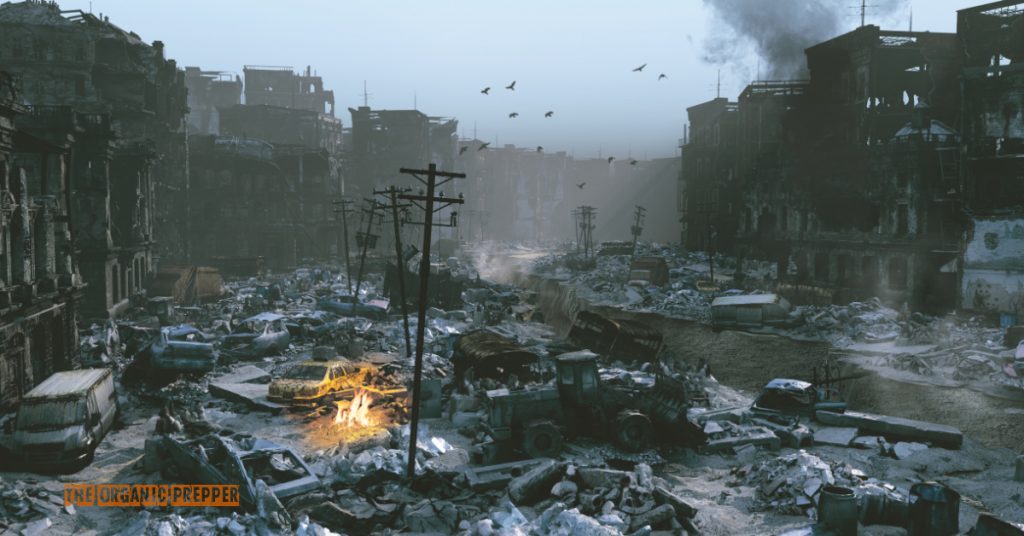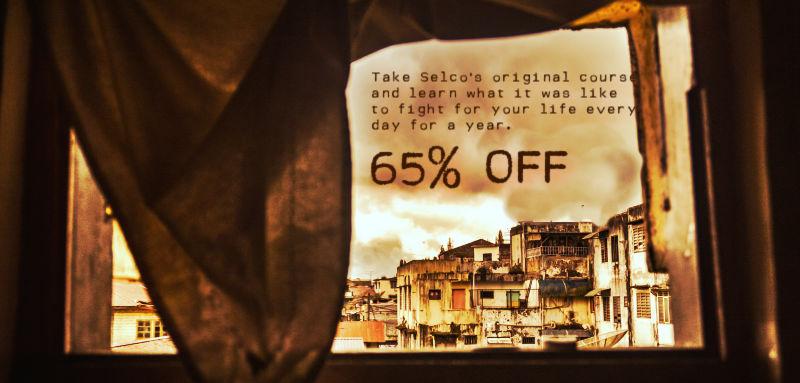by Daisy Luther, The Organic Prepper:

People want definitive solutions, manuals that gonna help them step by step, lead them from point A to point B. It works in any field of life, so it works too in the field of survival.
It is one of the reasons why we as humans become more and more dependent on the system-we are simply got used to manuals, disclaimers, warnings, advisories and similar things.
It affects us in every aspect of life. It is not a problem right now to live by manuals, disclaimers, warnings, etc. The real problem is in fact that one day all those things will be gone when SHTF, and if you are really conditioned to live by it you are in deep problems then.
TRUTH LIVES on at https://sgtreport.tv/
Books are written about bugging out or bugging in, and some of those books are good, but again, just like we are conditioned to follow manuals we are also conditioned to have OPINIONS and stick to it. So somehow it became modern to have an opinion about everything, and to stick hard to it, even more- to fight with people who have other opinions.
Bugging out, bugging in
Preppers usually choose prior SHTF are they gonna bug out or bug in when S hit the fan. And then based on that decision they put majority of their efforts into the direction and plan based are they bugging in or bugging out.
So, for example, people choose to bug out and most of their effort and money they invest in bug-out bags, vehicles, bug-out locations, planning their routes there, etc., etc.
Or people who plan to bug in invest all effort in reinforcing home, basement, stash or whatever. It seems that we forget that SHTF is by definition most probably going to be something unexpected, and it is going to force us to alter our plans.
Altering and adapting
Altering and adapting are words that preppers put for their profile pictures on prep forums, or patches on survival uniforms, logos and similar. Those words are everywhere in survival and prepping world, it is like every prepper is completely and absolutely ready to adapt, and still, somehow I have a feeling that many of us gonna die simply because, for example, they are not willing to walk long distances, stay without AC, be without favorite food and similar.
Altering and adapting are big words when it comes to survival, they are hardcore words. Now take into consideration here my words from the beginning of the article -that we are conditioned to follow orders, manuals, warnings. We are conditioned by the system.
As a result of all this mentioned above in this article we have this:
We have a whole bunch of preppers, who chose today that they going to bug out or bug in, then they are preparing for one of those solutions, putting all effort in that solution, and they are willing and ready to stick hard to that plan. Even if that means death, sometimes, because they simply not gonna spot flaws in that plan, they stick so hard to it, they love it.
Owning things
The big thing here, or we can say the big problem here is about “owning things”. We all as preppers over years and years of prepping collect and store thing that we think will make life easier or possible once when SHTF. Those physical things bring us a feeling of security, things like food, water or weapons, and all is perfectly logical there.
I mean owning weapon when SHTF is a priority, right? Yes, it is.
But the ultimate priority of survival is to survive.
Many of us mix things here about survival, things that you have to have to survive, things that are important, less important, comfort vs. necessity and similar – it is a huge topic.
But for this article, we need to understand that things are just like that – things. Yes, they make our life easier. But believe it or not, life is possible without many things. The final result here for many preppers is gonna be the fact that they might die, because they will value too much their physical preps, and they may fail to recognize the moment when they need to leave everything and run.
It is very easy to fall into that trap – to start to value your preps so much, you collected those things so hard, you invest your money into food stash, into 10 different kinds of weapons, into a bug-out vehicle, into a cabin in the woods.
So one day when SHTF you want SO HARD to reach that BOL because it is beautiful there, and so ready with a stash of everything for 5 years. And then you fail to realize that you needed to bug in for several weeks.
Or in another case you invested money for years into making a fortress out of your home, an underground bunker with many preps and similar, and one day when SHTF you simply refuse to run from all that even if that means you’ll save your life. You refuse to leave because staying is your plan. You stay and you die.
Should you bug in or should you bug out?
Often I have questions like “ should I bug in or bug out?”. And most of the time my answer is simply, “I do not know”. It is an honest answer because I do not know where you live, how many family members you have, what kind of place you live in, criminal activities around you, your skills and preps… and even if I knew all that I still do not know what kind of SHTF will happen in your case. How could I know if you need to bug out or bug in?
What I know are things and problems that you might face during bugging out or bugging in, you need to mix those problems into your own settings and make decisions.
And never forget that everything may change when the SHTF for real. Anything from your kid needing an antibiotic and being too sick to leave home to an EMP or a wildfire, for example.
So what is the solution?
Learn everything that you can (books, courses, experiences, skills, techniques). You can take my course where I explain in real detail what my life was like when it hit the fan in my city.
Be ready to leave everything (physical) in a split second if that means survival and life.
Learn to operate in terms of “less is more” or in other words, try whenever you can to substitute dependence on things with owning knowledge of a particular skill. For example, owning a big stash of water is great, owning skills and means to purify near water sources is even better.
Read More @ TheOrganicPrepper.ca




